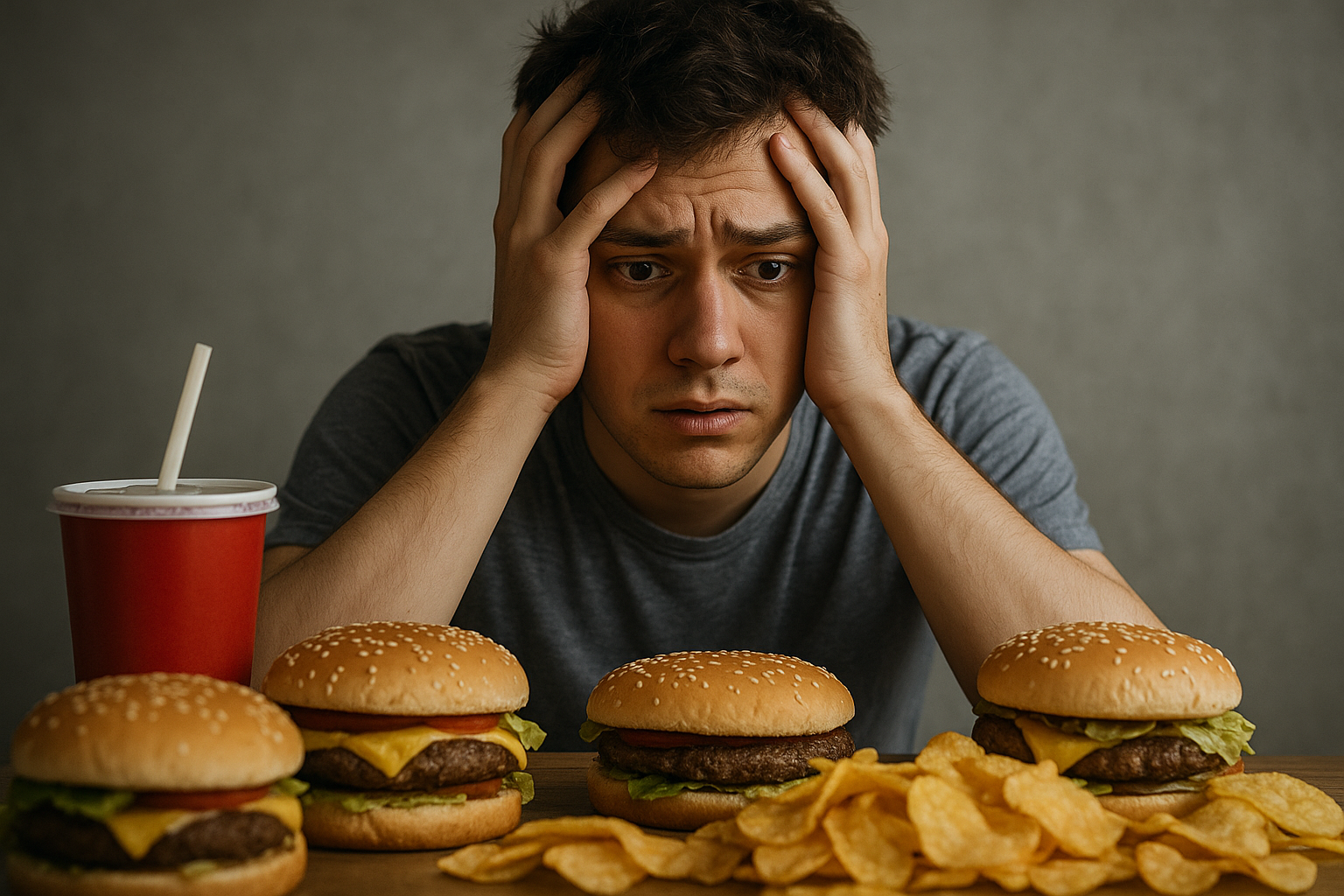Food Addiction: A Bigger Threat Than We Realised
A recent study has revealed that ultra-processed food addiction may be more severe than addiction to alcohol or tobacco, sparking global concern among health experts. With packaged snacks, sugary cereals, and fast-food meals now dominating modern diets, researchers say our brains may be more hooked than we think.
How Ultra-Processed Foods Took Over Our Plates
Ultra-processed foods (UPFs) are industrially manufactured products loaded with sugar, refined carbs, preservatives, artificial flavours, and unhealthy fats. They are engineered to be hyper-palatable meaning they trigger intense pleasure signals in the brain, similar to addictive substances.
Over the past two decades, the aggressive marketing of ready-to-eat foods, instant meals, and soft drinks has reshaped eating habits worldwide. These products are widely accessible, cheap, and convenient making them harder to resist, especially for children and low-income communities.
What the Study Found
Researchers compared behavioural patterns linked to food consumption with known addiction markers like cravings, withdrawal, and loss of control. The findings were alarming:
- One in seven adults showed signs of food addiction.
- One in three individuals with obesity displayed addiction-level dependency on processed foods.
- Brain scans revealed similar neural activity to that seen in drug and alcohol addiction.
Participants reported compulsive overeating, guilt, irritability when restricting intake, and persistent cravings even after feeling full.
Doctors Say the Brain Is Being Hijacked
Health professionals argue that it’s not just a willpower issue it’s neuroscience. According to nutrition scientist Dr. Ashley Gearhardt, “People are not weak. These foods are designed to override the body’s natural satiety signals and keep consumers hooked.”
Many experts are now urging governments to treat ultra-processed foods like addictive substances, calling for packaging warnings and marketing restrictions similar to those used for cigarettes.
Why This Study Matters
This research could redefine how we look at obesity and lifestyle diseases like diabetes, heart problems, and depression. If ultra-processed food addiction is as real as substance addiction:
- Dieting becomes a medical challenge, not just a lifestyle choice.
- Mental health interventions may be required alongside nutritional plans.
- Food companies may face regulatory pressure over product formulation.
What Comes Next?
Researchers suggest that future policies may include:
- Warning labels on high-sugar and high-fat processed foods
- Restrictions on advertising junk food to children
- Taxes on ultra-processed products similar to tobacco or alcohol
Meanwhile, doctors recommend small swaps replacing packaged snacks with whole foods like nuts, fruits, and homemade meals rather than attempting sudden drastic changes.
Final Thoughts
The message is clear: ultra-processed foods are not just unhealthy they may be addictive. As science uncovers more evidence, society may soon start viewing certain foods the way we now view cigarettes cheap, tempting, and dangerously habit-forming.



